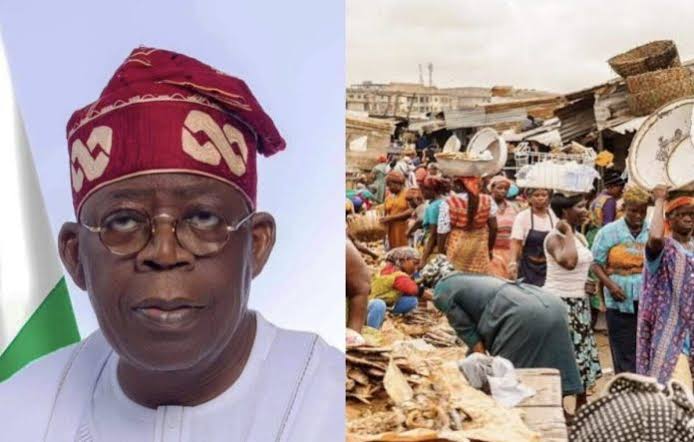Tinubu’s Two Years in Office: Performance Under Scrutiny Amid Policy Reforms
As President Bola Ahmed Tinubu marks two years in office, his Renewed Hope Agenda, launched in 2023 to drive economic stability, security, and governance reform, faces intense scrutiny. While the administration highlights achievements like the new minimum wage and local government autonomy, millions of Nigerians are grappling with severe economic hardship, soaring inflation, and hunger, which fueled the #EndBadGovernance protests from August 1-10, 2024. This report examines the past two years, balancing the government’s efforts with the stark realities faced by citizens.
Economic Reforms: Ambition Meets Anguish
On May 29, 2023, President Tinubu announced the removal of the fuel subsidy, a policy costing Nigeria N7.83 trillion over eight years, to free up funds for development. The unification of foreign exchange rates followed, aiming to stabilize the economy. These reforms reduced petrol imports by 50%, boosted government revenues to N9.1 trillion in the first half of 2024, and attracted $30 billion in foreign investment, per government data. The Nigerian Stock Exchange’s strong performance and the restart of Port Harcourt and Warri refineries signal progress toward energy self-sufficiency.
However, these policies have triggered profound economic strain. Petrol prices surged from N185 to N750-N1,000 per litre, a 400-500% increase, driving up transport and commodity costs. Food inflation reached 40%, with a 50kg bag of rice now costing N80,000-N100,000, up from N32,000 in 2023. The naira’s value dropped from N800 to N1,600 per USD, pushing inflation to 34.19% by June 2024. The World Food Programme estimates 26.5 million Nigerians face food insecurity, up from 19 million in 2023. Families report rationing meals, with some in northern states resorting to eating rice mill waste. “We can’t afford three meals a day anymore,” said Fatima Yusuf, a mother of four in Kano.
The #EndBadGovernance protests, spanning cities like Lagos, Abuja, and Kaduna, saw thousands decry hunger and high living costs. Demonstrators carried placards reading “Hunger is Killing Us” and “Reverse Fuel Price Hike.” The protests turned violent in some areas, with Amnesty International reporting 22 deaths and hundreds arrested, including minors charged with treason. The government’s response, including tear gas and internet restrictions, drew criticism for limiting free expression, though officials urged dialogue to address grievances.
Minimum Wage and LGA Autonomy: Steps Forward, Limited Impact
Men of Light recalls that in July 2024, Tinubu signed a new minimum wage of N70,000, up from N30,000, following negotiations with labor unions. The policy aimed to ease workers’ burdens, but its impact is diluted by inflation. Many states cite funding constraints, and the wage applies mainly to formal sector workers, leaving Nigeria’s vast informal workforce unaffected. “The new wage doesn’t buy what the old one did,” said Joseph Adebayo, a civil servant in Abuja.
Local government autonomy, secured through a 2024 Supreme Court ruling, grants Nigeria’s 774 LGAs direct access to federal allocations. The policy seeks to empower grassroots development, bypassing state government control. However, implementation challenges persist, with many LGAs lacking the capacity to manage funds effectively. Reports of mismanagement and delays in project execution have tempered optimism. “Autonomy is a good idea, but we’re yet to see better roads or clinics,” said Amina Ibrahim, a resident of Ogun State.
Security and Infrastructure: Gains Amid Ongoing Challenges
The administration has prioritized security, neutralizing 9,300 hostiles, freeing 4,600 hostages, and acquiring new surveillance aircraft. The creation of a 2,200-member Mines Marshal Corps aims to curb illegal mining. Yet, banditry and kidnapping continue to disrupt lives, particularly in the North, displacing farmers and worsening food shortages. The 2025 budget allocates N826.9 billion for education and N402 billion for health, with projects like the Lagos-Calabar highway advancing. However, high-profile expenditures, such as a new presidential jet, have sparked debate amid widespread poverty affecting 133 million Nigerians.
The N200 billion MSME fund and the Presidential CNG Initiative aim to support businesses and reduce transport costs, but slow disbursement and rollout have limited their reach. Only N22 billion of the MSME fund has been disbursed, leaving small business owners like Chukwudi Okeke in Enugu frustrated: “We hear of funds, but nothing reaches us.”
Governance and Public Sentiment
The Renewed Hope Agenda includes social initiatives like the Student Loan Act, targeting 1.2 million students, and the Three Million Technical Talent Initiative for youth skills development. However, perceptions of elite disconnect persist, fueled by allegations of favoritism in appointments and inadequate anti-corruption measures. Tinubu’s August 4, 2024, speech calling for dialogue was criticized for lacking concrete solutions to protesters’ demands, such as reversing the subsidy removal.
Government officials, including Vice President Kashim Shettima, highlight rising state revenues and a 2025 budget projecting 15% inflation and 2.06 million barrels per day in oil production. They argue that reforms need time to yield results. Conversely, citizens like Mercy Okonkwo, a Lagos trader, express exhaustion: “We were promised hope, but all we feel is hunger.”
Looking Ahead
Tinubu’s administration points to macroeconomic gains and long-term projects as evidence of progress, but the immediate pain of high fuel prices, inflation, and food insecurity dominates public discourse. The #EndBadGovernance protests underscored deep frustration, with demands for policies that prioritize relief. As the third year approaches, the Renewed Hope Agenda’s success hinges on translating ambitious reforms into tangible improvements for Nigeria’s struggling masses.
By Chidera Ndunagum







